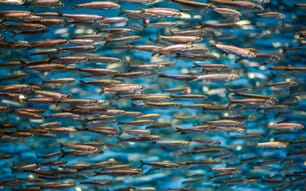According to a new report from Rabobank, growth in Chilean salmon output is also expected to stall between 2014 and 2016. Despite this slowdown, Rabobank has an optimistic view on the Chilean salmon industry and its ability to create lasting growth.
“Chile has all the prospects of being one of the best places in the world to produce salmon over the long term”, said Valeria Mutis, Rabobank analyst.
“Its potential for expansion is greater than any other region in the world. Its natural markets, the America’s and possibly Asia, are where most demand growth will occur. Hopefully, the past five or six years, which has seen the industry affected badly by outbreaks of the ISA virus, sea lice and other disease, will be key learning points which will set the industry on a path of more consistent, sustainable and profitable growth.”
A new but more limited outbreak of the ISA virus has rattled the Chilean salmon industry in 2013 as it recovers from the 2008 crisis. Even though the outbreak was immediately controlled, it has raised doubts over the effectiveness of new regulations put in place following the outbreak in 2008. Despite a severe crisis similar to 2008 being unlikely, the latest sanitary and production developments indicate that the industry still has challenges ahead.
Regulation of the Chilean salmon industry requires further improvement based on extensive research to move to a more sustainable ‘outbreak prevention’ model as opposed to the more ‘outbreak control’ orientation of the system now in effect.
Nevertheless, the industry is far different today than it was in 2008. An organised production model bounded by a strict set of systems and rules and increasingly controlled by the regulatory authority makes it unlikely that the 2008 disaster will be repeated.
Globally, in 2013, Rabobank expects Atlantic salmon production to expand only slightly, between one per cent and two per cent, as supply from Norway is expected to contract by two per cent to three per cent. Assuming a mild supply expansion in Norway, the price outlook for Atlantic salmon remains strong due to a faster growth of demand compared to global supply. This also means that the industry’s profitability will begin to improve despite the poor production parameters.



